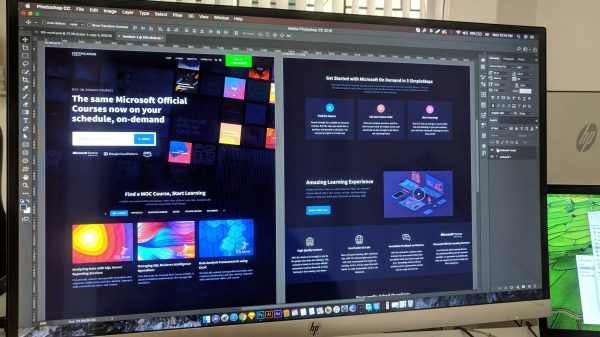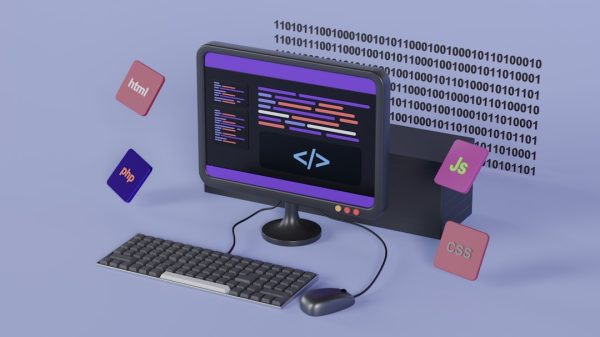LeetCode is one of the most popular platforms for aspiring software engineers and computer science students to sharpen their problem-solving skills. Filled with thousands of coding challenges across various difficulty levels, it is an exceptional resource for preparing for technical interviews. However, it’s easy for users—especially beginners—to feel overwhelmed. The seemingly endless number of problems, the wide range of topics, and the pressure to improve quickly can make the practice journey intimidating.
Practicing LeetCode doesn’t have to be a stressful experience. With the right mindset, structure, and strategy, anyone can turn it into a productive and even enjoyable part of their coding journey. Here’s how.
1. Start With a Plan
Planning is the foundation for successful LeetCode practice. Without a plan, users often find themselves choosing random problems, leading to frustration and confusion. As with any long-term goal, a clear structure helps provide direction and purpose.
- Set realistic goals: Instead of tackling five problems per day, try one daily or every other day if you’re new to problem-solving.
- Choose a study path: LeetCode offers curated study plans such as the 75 or 100-question patterns. These offer a great roadmap aligned with common technical interview expectations.
- Track progress: Use a spreadsheet or a tool like Notion to log the problems you’ve worked on and your outcomes. Seeing improvement over time is highly motivating.
2. Understand the Foundations First
Jumping into hard LeetCode questions without mastering the basics is one of the biggest traps for beginners. Understanding core data structures and algorithms is essential before attempting advanced problems.
- Master data structures: Arrays, linked lists, stacks, queues, trees, and hash maps are regularly tested and frequently used.
- Understand algorithms: Get comfortable with recursion, sorting algorithms, dynamic programming, and traversal techniques before progressing further.
- Use beginner-friendly platforms: Websites like HackerRank, Codewars, and Educative can help build fundamental understanding through tutorials and practice before switching to LeetCode.

3. Focus on Quality Over Quantity
A common myth in LeetCode practice is that doing more problems leads to higher success. While volume does help, depth of understanding is far more beneficial in the long run.
- Analyze every problem: Don’t just solve and move on. Reflect on what the problem tested, how your approach matched the optimal solution, and what you can improve.
- Re-do previous problems: Revisiting previously solved problems after a few days reinforces learning and ensures you have internalized the pattern.
- Read discussions: The community forum on each problem often includes insightful approaches that teach new ways to problem-solve beyond brute force solutions.
4. Segment Your Learning
Instead of randomly choosing problems, organize your practice by topics or problem types. This ensures focused learning and reduces the overwhelm caused by jumping between disconnected concepts.
- Stick to one topic: Spend a few days or weeks focusing solely on binary trees, dynamic programming, or graph algorithms. This approach builds momentum and confidence.
- Use LeetCode filters: You can sort problems by category, frequency in interviews, and difficulty. Stick to Easy and Medium problems at the start to build a foundation.
- Curated practice lists: Use trusted lists like NeetCode and Blind 75. They contain handpicked questions that offer maximum exposure to critical concepts with less cognitive load.
5. Make Use of Sessions and Breaks
Cognitive overload often creeps in when practicing for long hours without breaks. A more sustainable and focused method is to use techniques like the Pomodoro technique or timed sessions.
- Pomodoro technique: Work for 25 minutes, then take a 5-minute break. After four cycles, take a longer break (15–30 minutes).
- Limit practice time: Stick to 1-2 hours a day. Past that, fatigue sets in, and efficiency drops drastically.
- Take mental health days: Rest is crucial. Skipping practice here and there to reset your mind is far more helpful than forcing it daily.
6. Celebrate Small Wins
Acknowledging progress keeps motivation high. Whether it’s solving a Medium-level problem, understanding a new concept, or maintaining your streak, every step counts.
- Reflect weekly: Set aside time each week to look over your progress and identify concepts you’re mastering.
- Gamify learning: Use LeetCode badges and streak counters to keep practice exciting and habit-forming.
- Join communities: Becoming part of a coding Discord group, Reddit thread, or local coding meetup can help you stay motivated and accountable.

7. Shift Your Mindset
The way one approaches LeetCode practice significantly affects how overwhelmed they feel. Shifting the perspective from “I need to be perfect” to “I am learning and improving” fosters a healthier relationship with the practice.
- View each problem as a lesson, not a test.
- Accept mistakes: You’re supposed to get things wrong while learning. What matters is that you understand and grow from it.
- Detox from comparison: Avoid benchmarking yourself against others on forums or social media. Your journey is unique.
8. Keep Your Why in Mind
When burnout looms, remembering why you started helps reignite motivation. Whether it’s landing a dream job, becoming better at coding, or tackling real-world problems, keeping that goal visible acts as a compass on difficult days.
Write your “why” on a sticky note or digital memo, and revisit it regularly to maintain focus and perspective.
FAQs
- Q: How many LeetCode problems should I do daily?
- A: Quality matters more than quantity. One well-understood problem a day is better than five rushed ones. Focus on understanding the concept behind the problem.
- Q: Is it okay to look at the solution if I get stuck?
- A: Yes, if you’re truly stuck after giving it your best shot, reviewing the solution helps you learn. Make sure to understand the logic before moving on.
- Q: How long does it take to get good at LeetCode?
- A: It varies by person. With consistent daily practice, most users see significant improvement in 3 to 6 months. The key is not speed, but sustained learning.
- Q: Should I focus only on LeetCode or other platforms too?
- A: While LeetCode is excellent for interview prep, supplementing it with tutorials from YouTube, blogs, or sites like GeeksforGeeks can enhance understanding.
- Q: How do I stay motivated while practicing?
- A: Set achievable goals, track your wins, and join communities. Refresh your “why” regularly and avoid burnout by practicing moderation.
In conclusion, while the road to mastering LeetCode is filled with challenges, it becomes much more manageable and enjoyable with the right strategy. By building foundational knowledge, practicing mindfully, taking breaks, and celebrating small wins, anyone can progress without feeling overwhelmed. Stay consistent, be kind to yourself, and trust the process.


































